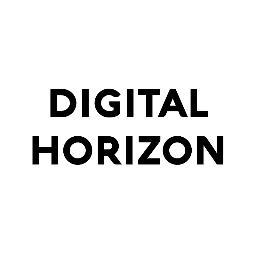
Fintech in 2022: Solutions for solo-entrepreneurs, metaverse payments and green fintech
VC Digital Horizon launches new ‘Fintech Trends for 2022’ report
Digital Horizon, one of the fastest growing European venture capital funds and venture builders specialising in fintech and SaaS companies, has released its annual ‘Fintech Trends for 2022’ report. It predicts the rise of fintech supporting micro-entrepreneurs, metaverse and “second reality” digital payments and green fintech, will be among the major trends driving fintech forward this year.
Drawing on the rich expertise of Digital Horizon’s seasoned team of investors, venture builders and partners, the report reflects the changes the pandemic has brought in the fintech sector and outlines the technology needed to address the challenges and opportunities the industry is facing. In the report, Digital Horizon has identified the seven key trends it believes will be fundamental in the evolution of the industry in 2022.
Solutions for solo-entrepreneurs
The pandemic has accelerated changes in the labour market, with increases in time employment, freelancing and self-employment. After years of shifting employment trends, 2022 looks set to be the year fintech catches up to the needs of the solo-entrepreneurs.
This year, Digital Horizon expects to see a boom in the fintech solutions needed to support solo-entrepreneurs – from niche fintech specialising in bank accounts for freelancers, to credit providers suited to gig-workers in the gig economy, to platforms providing greater financial stability and social benefits for the solo-entrepreneurs. Digital Horizon also expects the principles driving these technologies to move into the mainstream and overhaul traditional approaches to scoring and decision making.
Payments in the metaverse
The end of 2021 was dominated by metaverse news, and metaverses are expected to quickly become an integral part of daily lives. Although there is currently limited information about how metaverses will work practically, Digital Horizon believes fintech, digital currencies and NFTs will have a big role to play.
In a metaverse, consumption occurs in real-time and is not limited to a single platform. Metaverses will therefore require a new infrastructure for digital assets and payments, based in open ecosystems so payments and data can be managed and transferred easily.
In 2022, Digital Horizon expects to see new infrastructure for storing and exchanging different types of digital assets, embedded finance providing greater control for users and user identification to be led by fintech companies, not banks, to allow flexibility.
Green fintech
Digital Horizon predicts green fintech will become mainstream in the next three to five years, with regulators and society demanding that ESG resilience parameters become an integral part of finance. The ESG agenda — especially the climate agenda — is more relevant than ever and it has become important for people to place their funds in green, eco-friendly banks.
The fintech industry is promptly responding to this request, with companies helping users choose greener products and services and new platforms offering ESG investments. Digital Horizon expects this trend to accelerate in 2022 as it progresses towards mainstream adoption.
Fintech Trends for 2022 report
Digital Horizon’s report outlines the seven key industry trends for the fintech sector this year, and beyond, and highlights some of the key companies already operating in each space.
The full list of Digital Horizon’s fintech trends for 2022 are:
- Democratisation of private assets – Until recently, only institutional investors could afford and profit off high-growth assets, but the situation is changing. Technologies are entering the private asset market, making it more transparent and opening up new opportunities for highly profitable investments.
- Products for solo-entrepreneurs – The pandemic has accelerated changes in the labour market, but solo-entrepreneurs face similar problems as small and medium-sized businesses – such as raising funds to equip the workplace. As a result, the new type of employment requires new fintech solutions.
- Fintech for open ecosystems – 2021 changed the standard for retail payments. Open ecosystems have become a new distribution channel that helps independent players stand up against marketplaces and other types of centralised platforms. With the help of embedded finance, companies can implement more complex user scenarios, exchange the data they collect, and, as a result, reduce the time-to-market.
- Post-big data era – The world has accumulated large volumes of big data, yet the use of data has become less efficient. This is leading to a more selective approach to collecting, processing, and storing data, as well as an increased demand for specialists who can search for information on specific scenarios and predict their development.
- Tokenization of real-world assets – To overcome the crisis caused by the COVID-19 pandemic and accelerate the transition towards greener production, the real sectors of the world economy need additional funding. As a result, the real sectors of the world economy will have to restructure illiquid assets into tradable securities through tokenisation (digitisation).
- Payments in metaverses – Currently, we don’t know a lot about the metaverses, but we can envision what their fintech layer might be. In a metaverse, consumption occurs in real-time and is not limited to a single platform, so it requires a new infrastructure for digital assets and payments, based in open ecosystems.
- Green fintech – The ESG agenda — especially the climate agenda — is more relevant than ever. It has become important for people to place their funds in green, eco-friendly banks and the industry is promptly responding to this request.
Alan Vaskman, Founder and Managing Partner at Digital Horizon commented: “The past few years have been unexpected and difficult, but the fintech industry has adapted to the new challenges and opportunities in our daily lives and driven innovation throughout this time. As the world grapples with how life post-Covid will look, as well as the looming green agenda and arrival of metaverses, fintech’s role in our lives is set to not only continue, but to accelerate.
“As the colourful debit cards, 1-2-3 click transaction apps and payments move into the mainstream, we approach a stage where real, difficult problems need to be addressed by the fintechs. These include next generation financial infrastructure, availability of credit, deep financial product embedding into rapidly changing consumer spending and “person as a business”, while making these more sustainable in the long term.
“It is difficult to predict the future, but I am certain that the seven key trends in Digital Horizon’s report – from the tokenisation of real-world assets to the post-big data era – will all be fundamental to the fintech industry in 2022. Digital Horizon invests in and supports innovative fintechs with high growth potential. I can’t wait to see how they, and some of the brightest new fintech firms, meet these challenges and create new opportunities in the next year and beyond.”
Digital Horizon’s ‘Fintech Trends for 2022’ report was written by experts from the Digital Horizon team and its partners. Contributors include Alan Vaksman, Founder and Managing Partner at Digital Horizon, Victoria Arinstein, Head of Product Consulting at Digital Horizon Venture Builder, Denis Ivanov, Chief Investment Officer at Digital Horizon, Vlad Tropko, Partner of the Fund of Digital Horizon VC and Rohit Mathur, Partner of the Fund of Digital Horizon VC.
The report is available to read and download https://trends.digitalhorizon.vc/.


